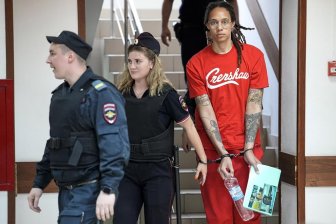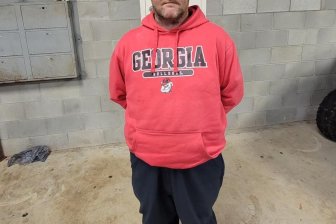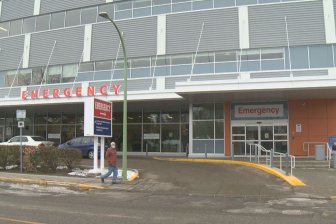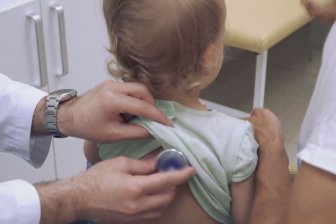The mother of a 15-year-old boy facing charges in an alleged North Vancouver crime spree last week is speaking out, saying she fought for years to have her son’s addiction treated, but was rebuffed at every turn.
The teen was arrested last Wednesday, after allegedly using a replica gun during a break-in and string of car-jackings.
“I believe the public needs to know more of the outline of what took place, what’s been happening with my son,” the mother, who cannot be identified because her son is a minor, told Global News in an interview.
Read more:
15-year-old facing multiple charges after North Vancouver ‘crime spree’: RCMP
Read More
-
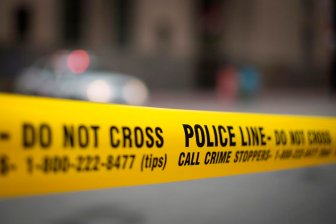
15-year-old facing multiple charges after North Vancouver ‘crime spree’: RCMP
“I believe this could have been prevented. There’s a number of things that have been going on with my boy. Since he was 13 years old, he’s spiralled into addiction.”
The teen is now being held in the Burnaby Youth Detention Centre where, for the first time, he is receiving treatment for his addiction, the mother said.
But she said that until he was arrested, the boy fell through the cracks of a system that does not allow for parents or anyone else to force youth into drug treatment.
“I’ve asked for, begged for, support from different government agencies, from the Ministry of Children and Family Development, from the office of the Representative for Children and Youth, from the police who have been in my house numerous times, paramedics, doctors,” she said.
“No one would help him.”
The mother said her son exhibited undiagnosed learning disabilities and ADHD from a young age and as an early teen began to struggle significantly with his mental health.
Even so, he was an extremely loving youth, and found ways to channel his energy into hiking and mountain biking.
Read more:
Renewed calls for rehab help after 2nd Vancouver Island youth drug death
But she said he began to use cannabis “excessively” to self-medicate as a 13-year-old, which he said helped to calm him down and deal with his anxiety.
From cannabis, he escalated into Xanax, Benzodiazepines usage, she said.
Early in his spiral, she tried putting her son in a group home in Langley through a voluntary care agreement. But she said the six-month stay did nothing to address his drug use.

“It did nothing for him, he still refused services. MCFD told me he needs to want to access services. He was 13 years old. There was nothing anybody could do,” she said.
“What I found was when he was at the home, there was nothing, all he had was a curfew. So he was basically getting up at 6 a.m. and coming back to people he was involved in around the drug use, and then he was back for curfew.”
Read more:
‘You were crying for help’: B.C. mom’s anguish after daughter, 12, died of suspected drug overdose
She took him out of the home and back to her house, hoping he would be safer under her supervision.
Instead, his drug use escalated to opioids, and she said prior to his arrest, she would routinely go into his room at night to check his breathing, fearing he would overdose and die.
“It’s completely destroyed my life. My life is obviously not the most important thing here. It has destroyed my son’s life.”
No recourse for treatment
The mother told Global News that when she began to see her son slide into heavy drug use, she sought help to make him get treatment.
But she said she was repeatedly told the only way that could happen is if her son volunteered — or ended up in custody.
Read more:
‘Heartbreaking’ overdose death of Indigenous teen in B.C. care highlights need for change: report
“The police departments and the MCFD told me very clearly the only way we can intervene and apprehend your son is if he commits a crime or he overdoses. That’s the only way,” she said.
Instead, she said social workers and the MCFD offered her parenting classes, and told her research showed parents can influence their kids into making the right decision.
Once her son began to spiral into hard drugs, though, she said it was impossible to get through to him.
“When a child’s brain is developing between 13 and 15 years old and heavily influenced by opioids or Xanax or all these things they’re on, there’s no choice, there’s no rational way for them to make the choice, ‘Yes mom, I need the help,’” she said.
When her son was arrested last week, the mother said she ultimately had to stand in front of a judge and “throw her son under the bus,” telling the court he needed to be in detention for his own safety and the safety of those around him.
“It was the worst thing I have ever had to do. Because my relationship with him is the last thing he has left. I am one of the last connections my son has left. And I knew he was going to have to sit there in that box and watch me do that.”

Global News asked the Ministry of Mental Health and Addictions to respond to the mother’s concerns she had no way to get her son into treatment unless he volunteered, overdosed or was arrested.
The ministry responded with a statement that did not address that issue.
Instead, it referred to its “A Pathway to Hope” roadmap, which it said would help address mental health and addiction issues through early intervention.
Read more:
Toxic drugs are now the leading cause of death for people between 19 and 39 in B.C.
“Since 2017, the province has been working urgently to build a system of mental health and addictions care from the ground up, where there was none before,” the statement reads.
“A $500 million investment will build that system, including $97 million for integrated mental health and addiction care for children, youth and young adults.”
The program includes funding for an eventual 23 Foundry centres which offer mental health and substance use support to youth, expanded early psychosis intervention services and early years mental health supports.
The province says it has created 33 of a promised 123 new youth addictions beds, and has allocated $57 million over the next three years to add 33 new and expanded substance use programs across the province.
Read more:
B.C. scraps controversial plan to involuntarily treat youth after overdose
The current law does not allow parents to force children to attend counselling or addictions treatment because under law, it is considered holding someone against their will.
In response to follow-up questions Thursday, the ministry confirmed there was “no provincial policy in place to allow a parent to admit their child into addiction treatment against their will.”
“Government’s priority is to make sure young people are kept safe and can access the services they need, when and where they need them,” it said.
“This includes building a voluntary system of care that is available when a young person reaches out for help.”

In 2020, the NDP government introduced legislation that would have allowed youth to be involuntarily admitted to drug treatment for up to seven days after an overdose.
That legislation was scrapped earlier this year after a backlash from advocates and community groups.
Critics warned a lack of support and treatment outside the hospital setting could actually put youth at a greater risk of overdose, because their tolerance to toxic street drugs would be lowered during treatment.
Opponents also argued that mandatory treatment was unlikely to have lasting effects if the drug users themselves are not interested in getting off drugs.
In the meantime, the mother said her son — now in detention — has now received the treatment she had long sought for him.
He is now getting wraparound services, talking to drug and alcohol counsellors, and getting the first schooling he’s had in nearly two years, she said.
He’s also getting a psychological assessment, and has completed withdrawal from the drugs he was on.

“I can actually see my son, not the drugs — it’s hard to explain but when someone is high off opioids or these hard drugs they’re looking at you but looking through you. For the first time I can connect with my boy again,” she said.
Her message to other parents is simple: this can happen to anyone’s child, and parents should intervene as early as possible, before their kids realized they can refuse treatment.
For the province, she has another message: find a way to empower parents to get their children into treatment.
Read more:
After a 15-year-old’s opioid overdose death, B.C. looks at giving parents more rights
“Does it really have to come to the point where my son has been left with me in my home and I have to watch him pass away?” she asked.
“The system needs to provide parents with some sort of support to intervene at an earlier stage if their lives are at risk. And I think in severe cases like this they should be undertaking interventions on a case-by-case basis, and they should give one part of the system or all parts of the system power to intervene.”


